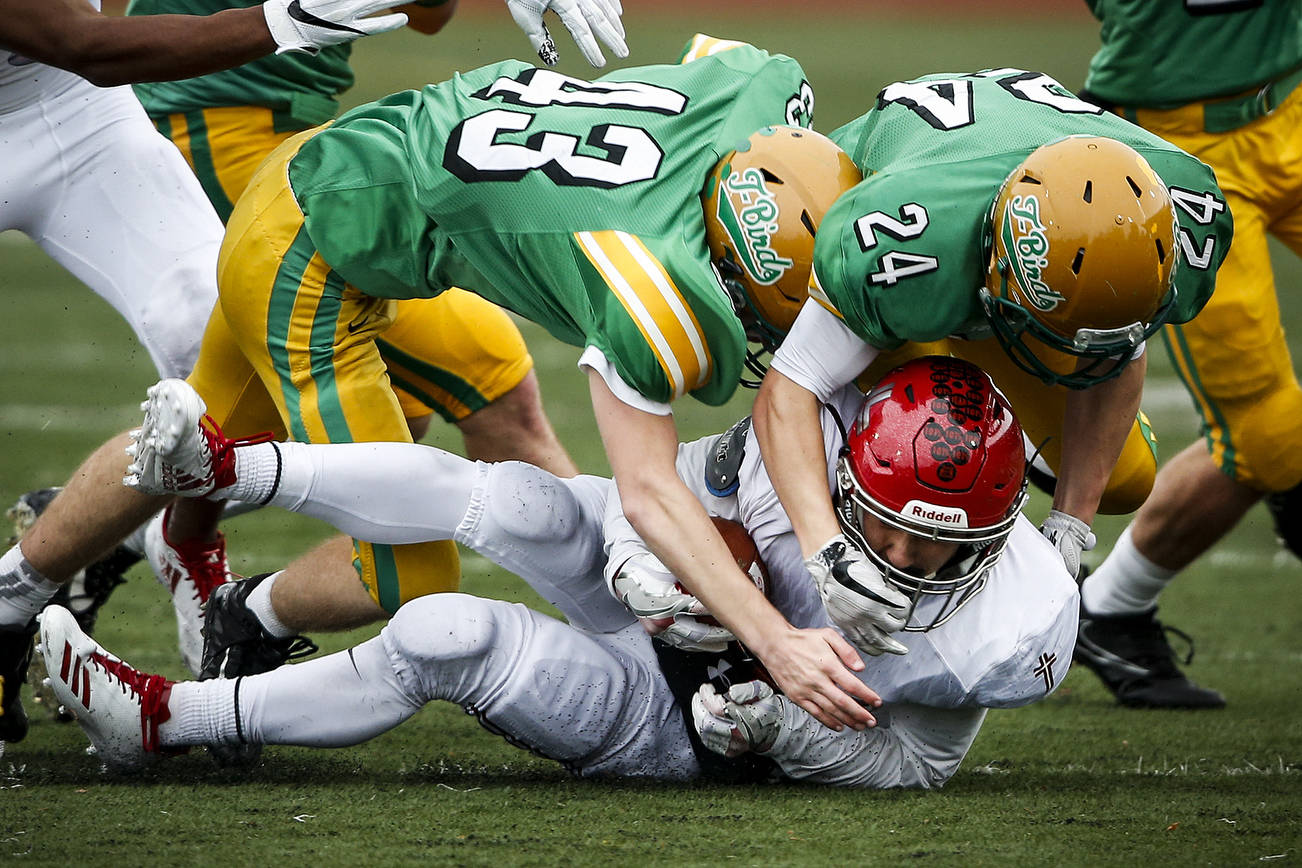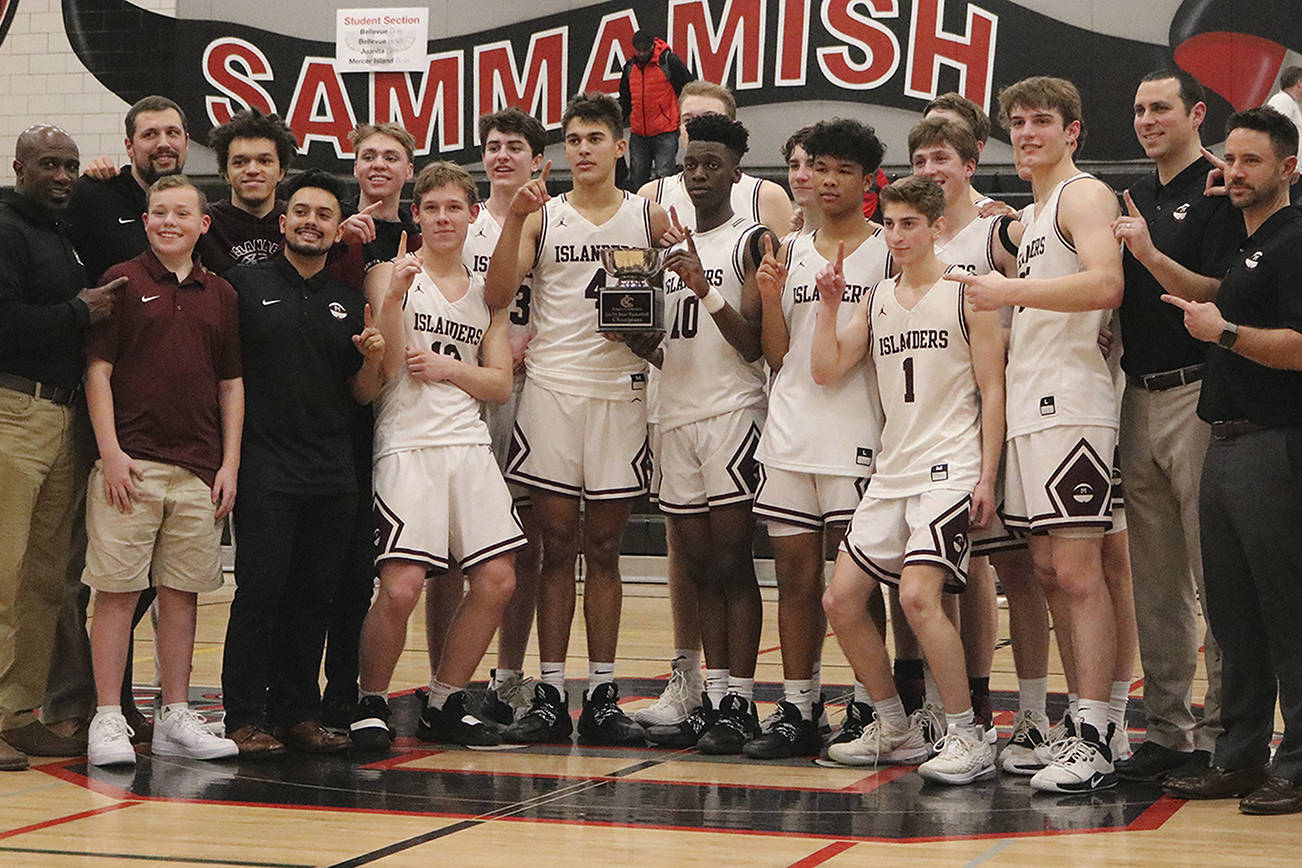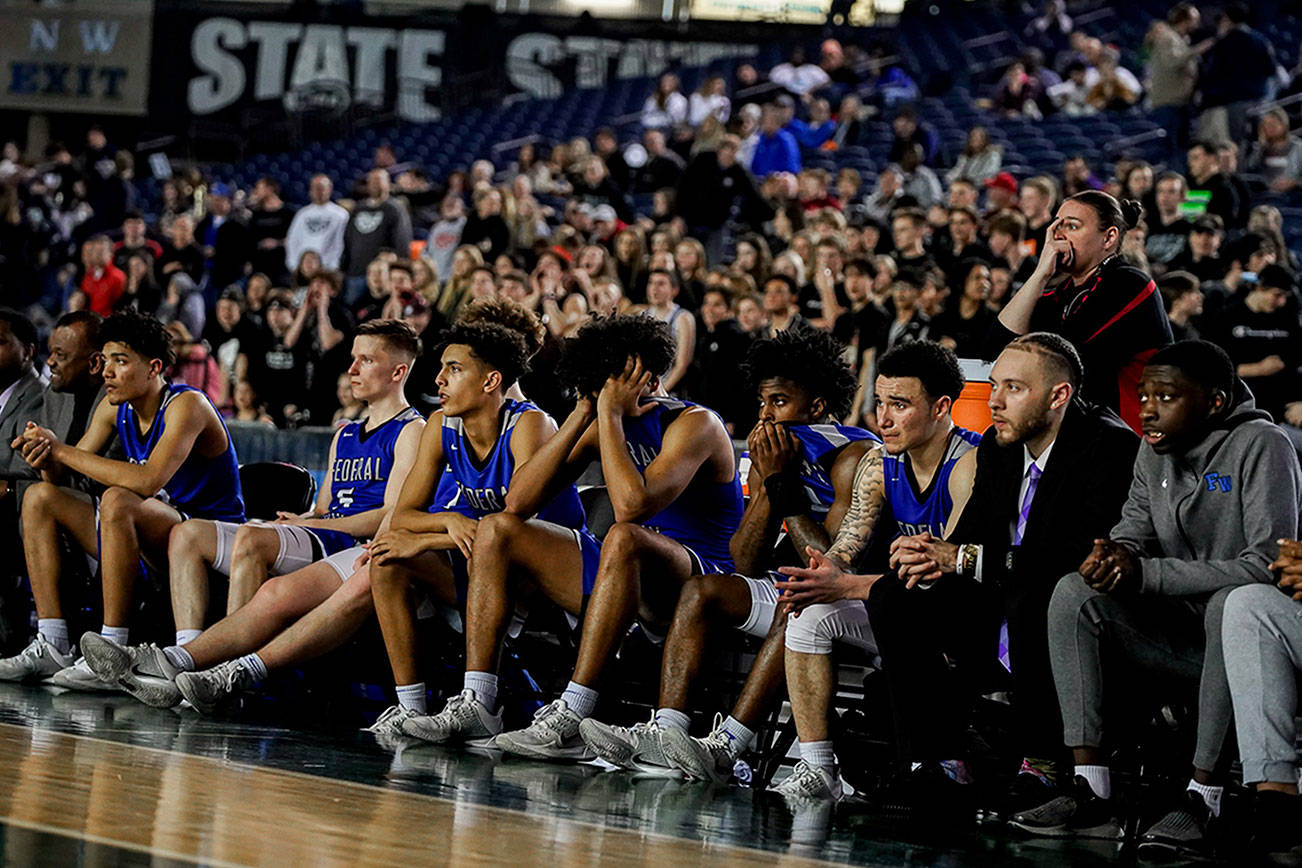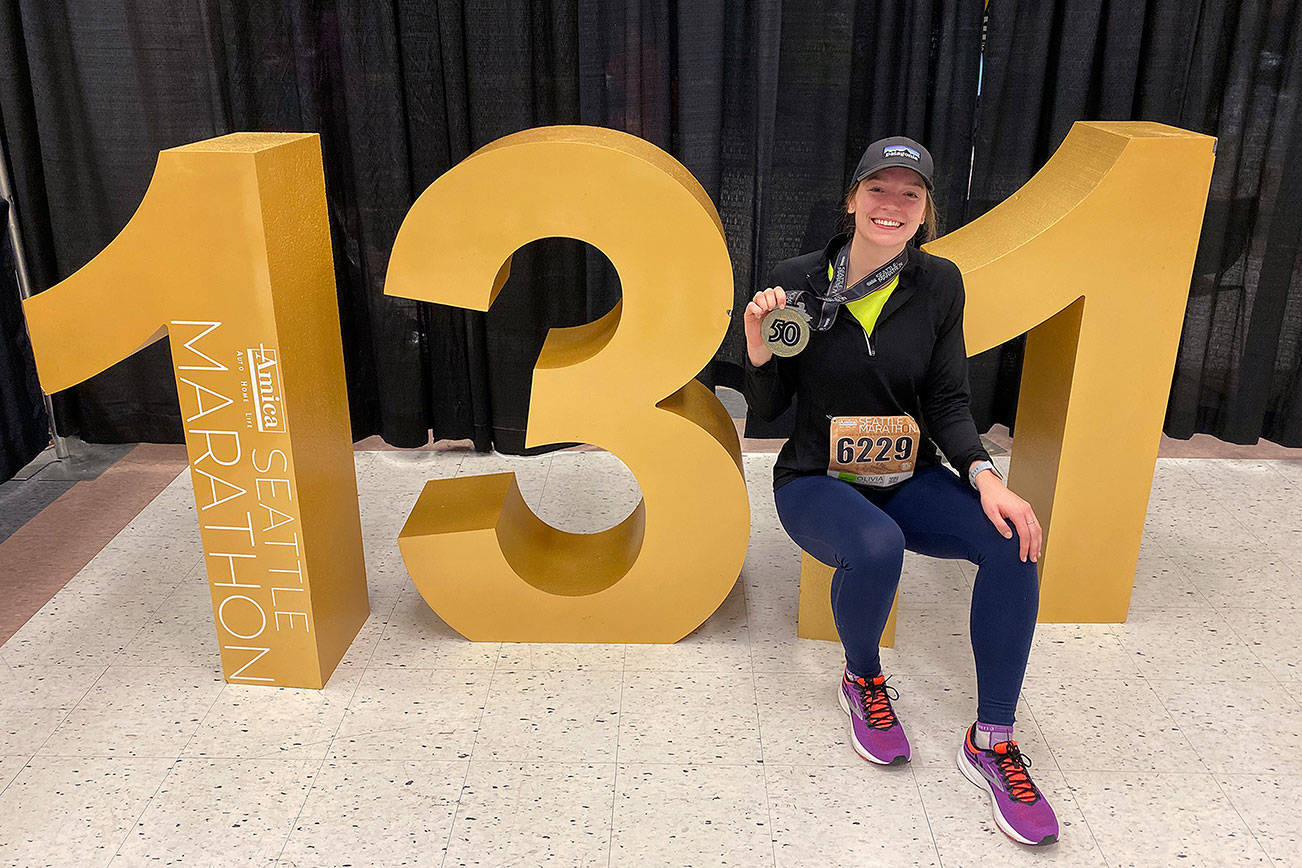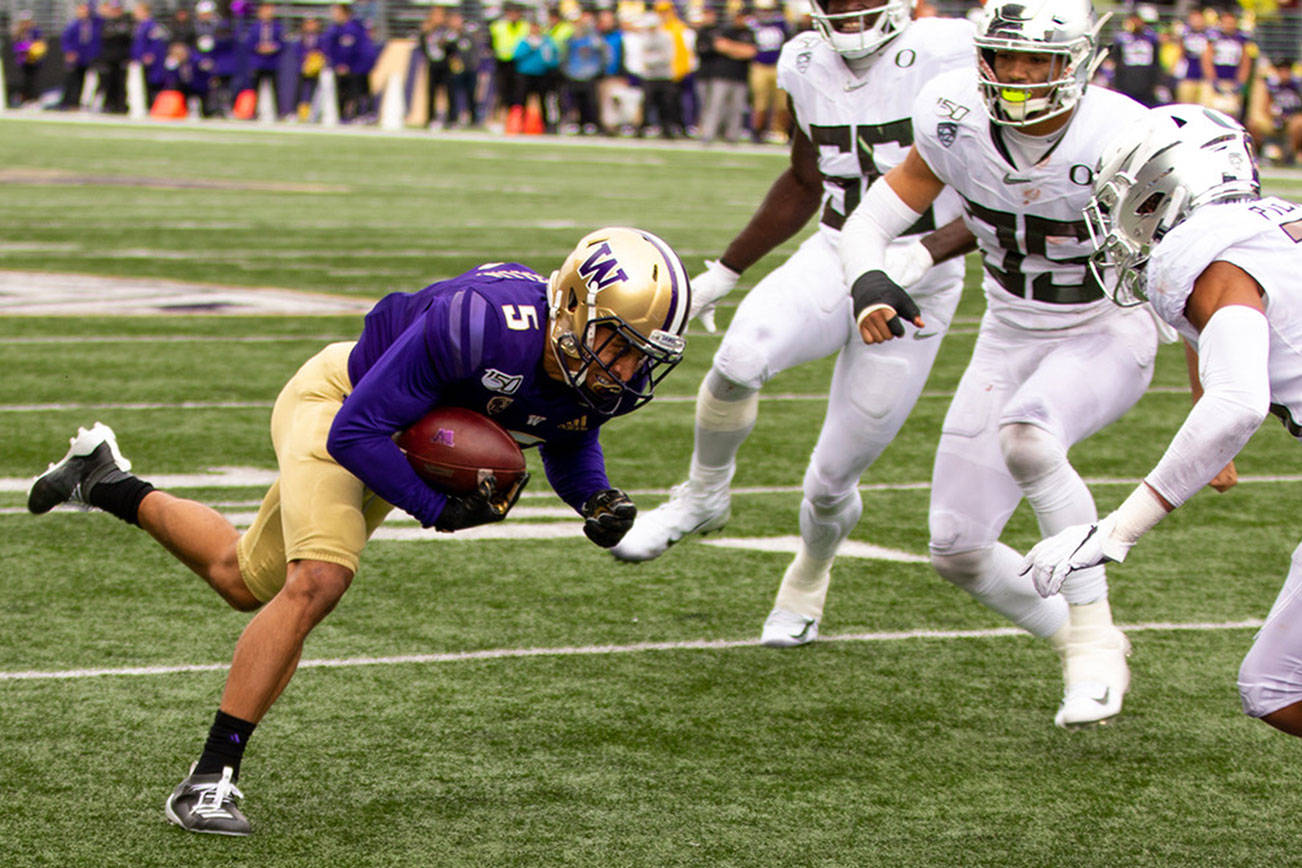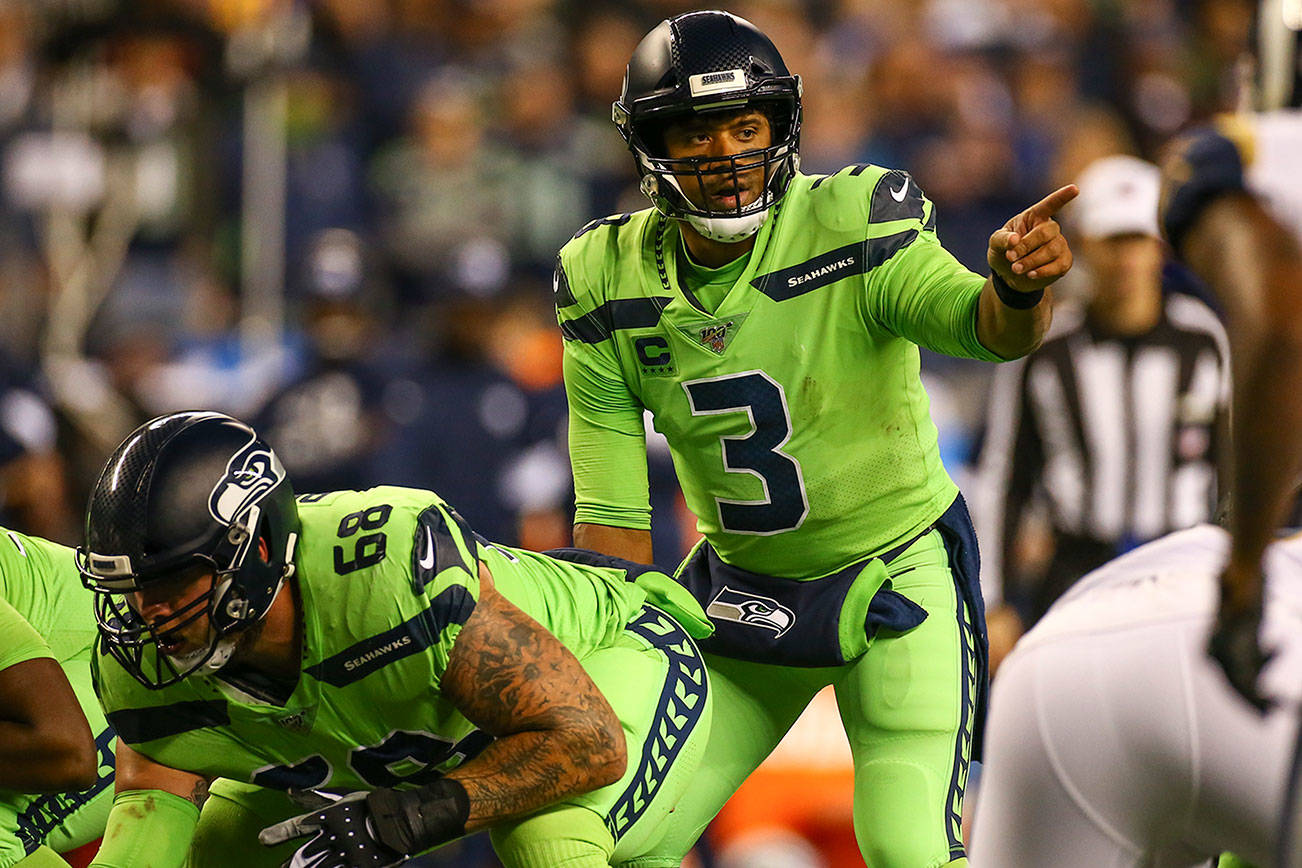The 2018 high school football postseason is set for a shakeup.
The Washington Interscholastic Activities Association announced last week that it will use three selection committees to determine seedings for the state football playoffs after the traditional Week 10 play-in games.
Each committee will be assigned to two classifications: 4A/3A, 2A/1A, and 2B/1B.
Many coaches around the state weren’t satisfied with the traditional draw system, which slotted teams in spots based on district seeds and tried to keep matchups in the early rounds between schools with close geographical proximity.
“Sitting around at coaches clinics and different things, several of us have always said, ‘Hey, we can seed this tournament and do a little better than the draw,’ ” WIAA executive board member Greg Whitmore said.
Whitmore, the athletic director and head football coach at Lind-Ritzville High School, said the WIAA is accepting applicants for spots on the committees.
Opinions vary on who should man the committees, with suggestions including current coaches, former coaches, media members, and athletic directors. One thing all the coaches agree on is that the committee members need to have a high IQ when it comes to high school football in the state.
“They definitely need to make sure that they have people on there that are knowledgeable about the leagues and teams, that have seen them play, that have seen their opponents play,” Meadowdale football coach Matt Leonard said. “I think the worry for a coach like me is that someone’s gonna be deciding our fate that hasn’t seen us play or seen our opponents play.”
Another factor coaches would like to see addressed is making sure top teams don’t match up in the first round or quarterfinals. The most egregious case of that may have happened in 2007, when the No. 1- and No. 2-ranked 3A teams in the state—Lakes and Skyline—played in the first round.
“That just shouldn’t happen,” Leonard said. “You should have the right to play (each other) on Friday night or Saturday night for the state championship.”
More recently, 2016 Olympic 2A champion and undefeated North Kitsap, which outscored opponents by 33.4 points per game, opened the playoffs on the road against an undefeated Archbishop Murphy squad that was clearly the top 2A team the state.
“I just think that by winning your league and going undefeated that you should have the opportunity to host some playoff games,” Lake Stevens coach Tom Tri said. “And that’s not how it works with the current system all the time.”
Sometimes the numbers don’t tell the story.
Last season, Wesco 4A-champion Lake Stevens opened with Graham-Kapowsin, led by UW-bound quarterback Dylan Morris, and Wesco 4A runner-up Monroe squared off with Puyallup. G-K did finish one game behind Puyallup in the South Puget Sound League standings, but Monroe coach Michael Bumpus said his second-place Wesco 4A team got the easier draw.
“I hate that Lake Stevens beat us, but going (into the playoffs) they were the better team and we (got) the easier schedule,” Bumpus said. “It should be like any other tournament where the better teams face the weaker teams.”
Not every coach thinks the early-round powerhouse matchups are an issue, though.
“All in all, I don’t really feel like the system is that broken,” King’s coach Jim Shapiro said. “I also kind of have that old-school philosophy that you gotta play who you gotta play. Be it round one or the state championship, you gotta play. So I’m not overly concerned about having a tougher draw in round one than the semis.”
The biggest issue seen by coaches with the formation of the committees is the potential for human error or bias.
“I’ve just seen flaws in committees all the way down to our all-league selection committees,” Shapiro said. “It’s a pretty biased process, and I’d be concerned to see how biased it’d be.”
The WIAA could turn to RPI for statistics-based seeding—as it does for the state basketball tournaments—in an effort to eliminate human error or bias. But as more leagues switch to tiers for football—with the stronger teams in one tier and the weaker teams in another—the RPI system doesn’t work for teams in those leagues.
And the RPI itself is not perfect. Whitmore said 3A state-semifinalist Garfield wasn’t favored by the RPI last season. The Bulldogs had five losses and would’ve received a low seed even after a 41-0 blowout of two-loss Everett in a Week 10 play-in game. Anybody who examined Garfield closely could see they weren’t a typical five-loss team. Their five regular-season losses were to a state champion, a state runner-up, two state semifinalists and a state quarterfinalist from 3A and 2A.
Regardless of what system is in place, there will always be a flaws, Whitmore said.
“The draw certainly wasn’t perfect. The RPI that we put together was never gonna be perfect. This human seeding committee is never gonna be perfect,” he said. “We’ve got such a diverse state and strength of leagues, and everyone’s not playing each other.”
A version of this story first appeared in the Everett Herald.
